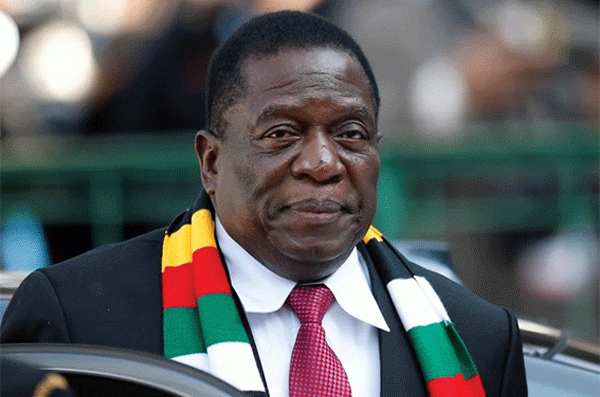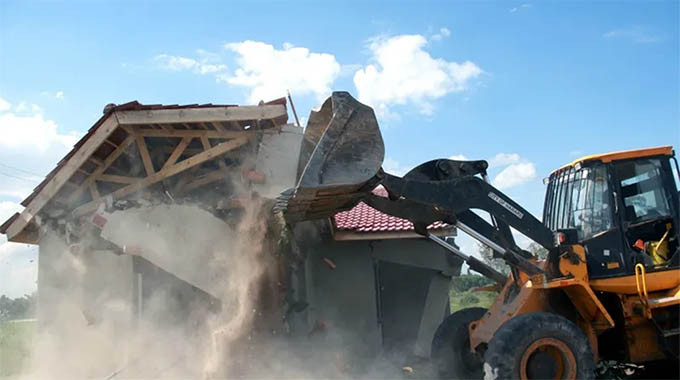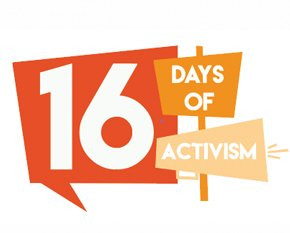
FORMER United States President Franklin Delano Roosevelt once famously said: “I ask you to judge me by the enemies I have made.”
This seemingly strange statement refers to the fact that, in politics, when a leader is on the right path, and is making consequential decisions for the future of his country, they attract powerful and often dangerous enemies.
For it is those with the most to lose from change, who end up the biggest opponents of it. I was reminded of this quote when I saw disgraced former minister Jonathan Moyo, who fronted the faintly ridiculous #KwekweHim campaign ahead of the July 2018 elections, intensify his vendetta against President Emmerson Mnangagwa.
After all, Moyo is alleged to have dipped his fingers into the Zimbabwe Manpower Development Fund coffers.
When you hear Moyo vociferously denouncing Mnangagwa and endorsing MDC Alliance leader Nelson Chamisa, you cannot help but ask, why does Moyo suddenly oppose Mnangagwa so much?
This fact alone should give MDC supporters and their cheer leaders in the media (who have now suddenly and conveniently forgotten their recent hatred of the professor) cause for concern. If Moyo believes his interests are now best served by a Chamisa government, Mnangagwa must be doing something right!-Faith Hope
Liberators have morphed into oppressors
THE Centre for Natural Resource Governance (CNRG) joins the nation in commemorating the heroic sacrifices made by the people in liberating the country from colonial rule.
- Chamisa under fire over US$120K donation
- Mavhunga puts DeMbare into Chibuku quarterfinals
- Pension funds bet on Cabora Bassa oilfields
- Councils defy govt fire tender directive
Keep Reading
We cherish the umbilical cord that united our people for a common cause and vision for a free, democratic and prosperous Zimbabwe. The fish and water philosophy ensured our gallant fighters worked hand-in-glove with civilians in both rural and urban areas, especially during the penultimate phase of the liberation struggle. The land question was the main grievance that torched both the First and Second Chimurenga.
CNRG is, however, concerned about a new form of colonialism that is growing louder and increasing in visibility with each passing day. It is called “extractivism”. Unlike British colonialism which was imposed on us without our consent, the new form of colonialism is engineered by the Zimbabwean government in the name of investment.
Throughout the country, the masses are living on the edge as hundreds of special grants are issued to so-called investors, predominantly from China, to explore for minerals and ultimately displace our people from their ancestral homes. This is in stark contrast to what the fallen and living heroes and heroines sacrificed for. The future of many Zimbabweans is uncertain. Even the dead are not spared as evidenced by drilling in cemeteries and exhumations. The deals entered into are a closely guarded secret.
Instead of advancing economic development and equality for Zimbabweans, our liberators have morphed into a bourgeoisie class. True to Paulo Freire’s submission that “for the oppressed, to be is to be like the oppressor”, our liberators removed the combat fatigue and morphed into an oppressor regime. They maintained colonial laws like the Mines and Minerals Act and the Communal Lands Act which continue to render Zimbabweans landless in their own country.
As we commemorate Heroes Day, these laws continue to threaten the rights of the already marginalised Nambya and Shangani communities of Dinde in Hwange, Chilonga in Chiredzi, and Chipinge, just to mention a few, as disruptive development projects are forced on their land without their consent.
Parts of Marange area have been declared protected areas — a euphemism for taking away their civil liberties to secure diamond fields that continue to be plundered since government took over in November 2008. More than 1 300 families were evicted from Marange without compensation and dumped at Arda Transau which is more than 80km away. Diamonds worth hundreds of millions of dollars continue to be looted from Marange annually without any benefit accruing to the Marange community.
CNRG is not opposed to investment. However, we believe Zimbabweans must not be treated as squatters on their land for which thousands of our gallant forebears died liberating. We believe genuine investors ought to obtain a social licence from locals and the extractive engagements should improve the quality of life of host communities- CNRG Information Department
Entrepreneurship addresses the unemployment question
THE Zimbabwean economy has struggled to reshape after a prolonged battering in the past two decades.
With the increasing unemployment, entrepreneurship has since occupied the space that was previously taken by industry and the commercial sector in meeting the employment and livelihoods needs of Zimbabweans. The COVID-19-induced lockdown worsened the situation as companies were forced to downsize and cut costs.
However, entrepreneurship plays a very critical role in the economic development and growth of any country as it contributes to employment creation, revenue generation and most importantly economic transformation, simultaneously reducing poverty, especially among the youth.
Small and cost-effective businesses are evidently creating employment and sustainable livelihoods to both the rural and urban youths.
The government should take bold steps in addressing, assisting and empowering young entrepreneurs from both urban and rural areas.
Entrepreneurship is giving both the rural and urban youths opportunities to be creative and innovative, putting new ideas which boost the economy for the benefit of the whole nation.
The young entrepreneurs need to be innovative so as to succeed. In Zimbabwe, people know more about musicians than about entrepreneurs.
Despite the opportunities that come with self-starting and skills-supported businesses, little mechanisms are in place to channel the gained resources to the benefit of the nation at large.
This is largely to do with lack of government support to the everyday struggles vendors and owners of small-and-medium enterprises face.
Entrepreneurs change the way people live and work in a tremendous way through the creation of jobs and wealth for everyone who is willing to work- Zimbo Alive











